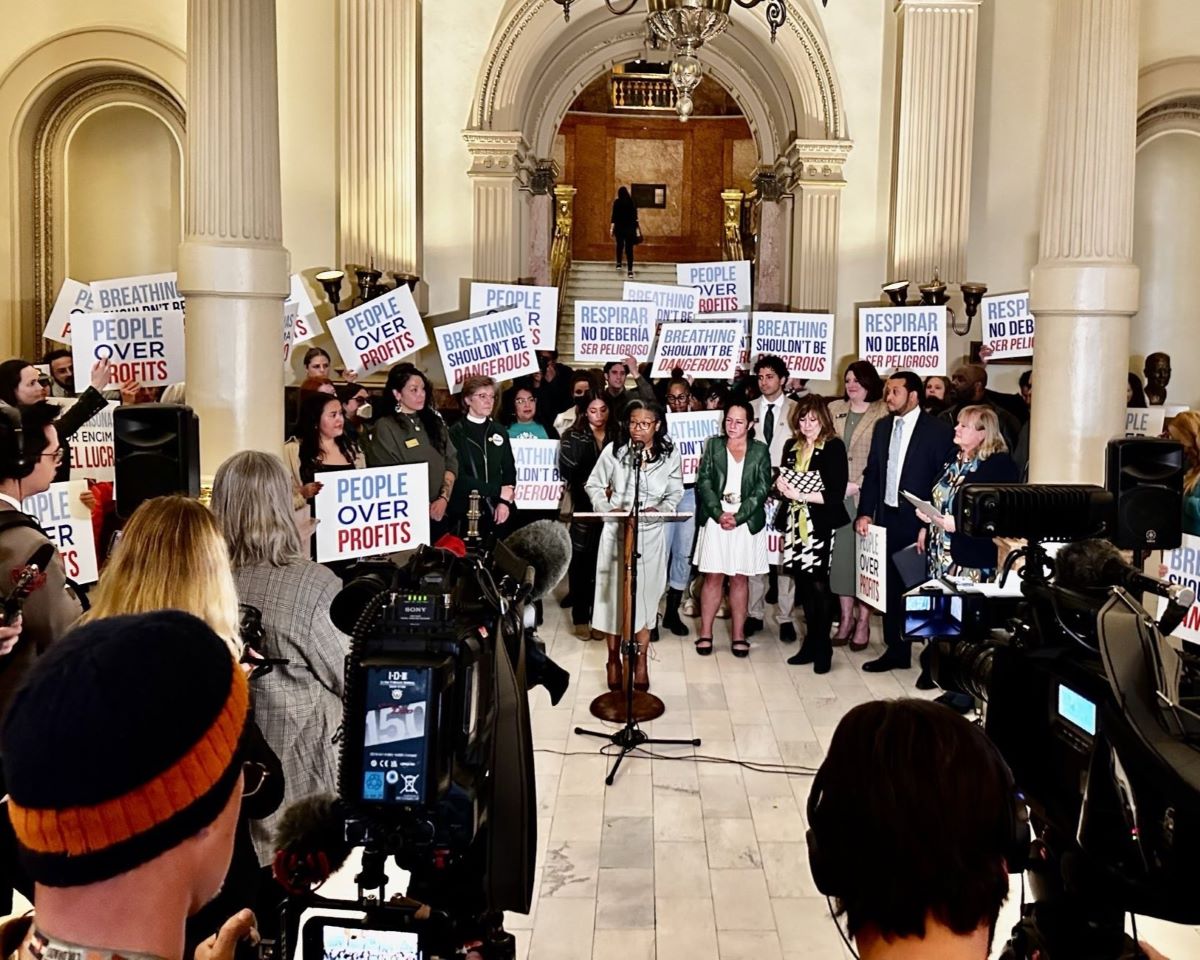
Good Climate News Roundup – 2024 Year in Review
Dec 20, 2024
Help LCV respond to threats to our communities and our climate in 2025 Give Now
Worried about toxic chemicals in the products you routinely shop for and bring into your home? Well you can rest easier because two Minnesota companies have your back. Target and Best Buy are among the leaders in a new report, Who’s Minding the Store? — A Report Card on Retailer Actions to Eliminate Toxic Chemicals. The Report Card rated 30 leading U.S. retailers on their chemical policies, yielding numerical and letter grades. Evaluation criteria included whether or not the retailer had a corporate chemical policy and if it included key components such as management oversight, supplier ingredient disclosure, reduction or elimination of chemicals of high concern, policies on safer alternatives, use of third party standards and whether or not the company discloses product ingredients and lets consumers know about their policies.
The seven highest scorers include Apple, Wal-Mart Stores, CVS Health, IKEA, Whole Foods Market, Target, and Best Buy, with scores of B or higher. Target’s policy is framed around a Sustainable Product Index, which focuses on elimination of chemicals of concern in beauty, baby care, personal care, textiles and household cleaning products. They have set specific chemical reduction goals for high priority hazardous chemicals, including flame retardants, phthalates, parabens, perfluorinated chemicals and formaldehyde. Target has set an ambitious goal of complete ingredient transparency, including fragrance ingredients, by 2020 for beauty, baby care, personal care and cleaning products. Finally, Target is investing $5 million in green chemistry innovation over the next five years, to develop and test safer alternatives.
In 2017 Best Buy announced a new corporate chemical policy that identifies restricted chemicals in products and in the manufacturing process. For private label and direct import products they require suppliers to disclose chemical ingredients, specify substances to be restricted, provide supplier training, and audit for compliance. Best Buy also prefers EPA Safer Choice products and features EPEAT-certified products in their stores.
Target and Best Buy have taken significant steps to protect their customers from unnecessary exposure to toxic chemicals, and we urge them to keep improving their policies. While Target has made significant progress since 2013, when they flagged over 2,000 chemicals of concern for elimination, they could improve their program by expanding their priority chemicals of concern in textiles and formulated products. They could also expand their priority product categories to include electronics, toys, food and food packaging. Best Buy could improve their program by making their chemicals of concern list public; setting clear goals and measurements for reducing, eliminating and safely substituting toxic chemicals; and expanding their policy to include packaging.
In addition to Target and Best Buy, several retailers made significant progress this past year. Costco announced they will partner with the Berkeley Center for Green Chemistry to develop a comprehensive chemical policy to eliminate chemicals of concern in furniture, textiles, personal care and other household products. Home Depot recently announced a new Chemical Strategy to remove hazardous chemicals from paint, carpet, flooring and other home building products. Home Depot had previously led the home improvement retail sector in eliminating phthalates from vinyl flooring. Their new policy will focus on additional chemicals of concern such as flame retardants, nonylphenol ethoxylates, organotins, formaldehyde and others.
While one-third of major retailers are leaders, with scores of C or higher, two-thirds are seriously lagging behind. The average score for the 30 retailers was a D+ and nine retailers scored an F, so there is need for significant improvement. The retailers at the bottom of the pack include Toys “R” Us/Babies “R” Us, Ace Hardware, Ahold Delhaize (parent Company of Food Lion), Dollar General, Kohl’s, Office Depot, Sally Beauty, TJX Companies and Trader Joe’s.
Please send a message to the retailer laggards and ask them to take action on chemicals.
And thanks to Target and Best Buy and the rest of the retail leaders for taking steps to protect our health!